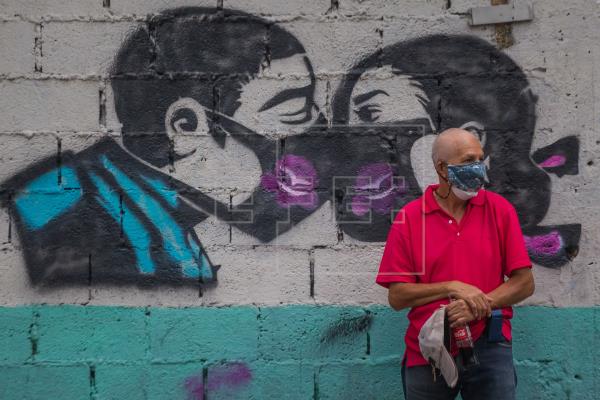RIO DE JANEIRO, BRAZIL – The threat of a third wave of covid-19 continues to grow in Latin America, which, with limited resources and marked inequality, is struggling to expand its vaccination plans while increasing restrictions to curb a virus that has left nearly 25 million infected and 777,000 deaths in the region.
“The death toll remains high, with more than 34,000 deaths recorded last week (March 22-29). Brazil, Peru, Chile, and Paraguay have reported the highest rates,” warned Wednesday, the director of the Pan American Health Organization (PAHO), Carissa F. Etienne, in her weekly assessment.

AMERICAS: 55.7 MILLION CASES AND 1.34 MILLION DEATHS
PAHO’s warning comes as the region prepares for a feared new wave of the virus. The World Health Organization (WHO) reported that the global number of infected people is 127.8 million, and the number of deaths is 2.8 million.
In both the Americas and Europe, the two most affected continents, there has been an increase in daily cases, which has forced new closures and quarantines in the middle of Easter Week.
According to the WHO, America recorded 55.7 million infections and 1.34 million deaths, while Europe reported 44.8 million cases and 965,000 deaths.
By country, the United States continues to be the most affected nation globally (30.4 million cases and more than 551,000 deaths), followed by Brazil, with 12.7 million cases and some 321,000 deaths, and India, with 12.1 million positive cases and more than 162,000 deaths.
In Latin America, after Brazil, the countries with the most infections are Colombia (2.39 million), Argentina (2.33 million), and Mexico (2.23 million).
Thus, the Americas have 55.7 million cases and 1.34 million deaths. Of this figure, Latin America reports some 24.5 million infections and more than 777,000 deaths.
PROGRESS IN VACCINATION
Etienne explained that “as of yesterday (Tuesday), 124 million people have received at least one dose of vaccine in the Americas, and more than 58 million have completed their vaccination schedules,” but noted that we could not let our guard down as the virus is spreading at a faster rate. Delays in vaccine production are a cause for concern.
“As we celebrate progress, we cannot close our eyes to the fact that vaccine supply remains our biggest challenge,” he said.
According to the Our World in Data map, linked to Oxford University, 577.92 million vaccines have been administered globally. In North America, 162.67 million inoculations have been made, while in South America, there are already 36.14 million, leaving Central America and the Caribbean relegated to 2.17 million doses.
THE FACE OF INEQUALITY
PAHO confirmed that in the last 30 days, more than 2.5 million doses of vaccines acquired through the WHO’s Covax global mechanism have arrived in 17 countries in the region. This week, Guyana, Bahamas, Trinidad, and Tobago, and Belize received their first shipments.
However, the head of the organization regretted that there are “too many examples of nationalism regarding vaccines, which further limits global availability (…). The current system is designed for inequity, and this is not acceptable”.
The Red Cross agreed in assuring that “almost all the doses of vaccines administered have been reported in the richest countries” of the continent. Still, in those with per capita affectation, “an inequality in response to covid-19 stands out”.
A complex situation that is also corroborating how the virus has “consistently and unfairly harmed the poor, the elderly, migrants, those living with disabilities, indigenous and racialized communities and other socially disadvantaged groups,” the agency said in an analysis.
AN END TO THIS PANDEMIC
Several countries in Latin America are preparing for the Holy Days and, on the eve of the most important dates in the Catholic world, many of the processions, meetings, and prayers are once again being transferred to the virtual world to avoid the blow that the third wave of the virus could represent.
Thus, countries such as Colombia, Peru, and Ecuador have already begun to restrict the traditional areas where religious ceremonies are held.
The greatest fear is in concentrations such as the one in Guatemala, with crowds in churches and thousands of people on their way to the country’s beaches and tourist centers.
Meanwhile, in Venezuela, hundreds of Caracas residents, including health personnel, received today the Nazarene of St. Paul, the main invocation of Jesus Christ in the country, to ask him, for the second time, for the end of the pandemic that has been affecting the world for the last year.
Source: EFE

